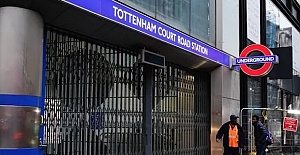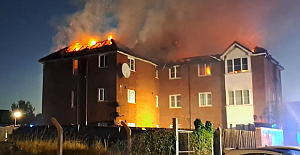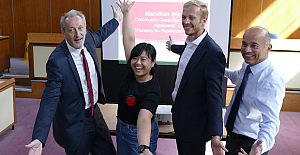“Imperialist Russia employs tactic of old in Ukraine”
Russian President Vladimir Putin has stated during the current week, that there is no need yet to send Russian troops into Ukraine, but he has not ruled out doing so and that Russia reserves the right to use "all means" to 'protect' citizens in Ukraine. As this copy goes to press a tense stand-off exists between Russian and Ukrainian troops in the Crimea. Mr Putin has described the toppling of President Viktor Yanukovych in the capital Kiev an "anti-constitutional coup and armed seizure of power" and that "militants" had plunged the country into "chaos". He has also suggested that Ukrainian "nationalists" and "anti-Semites" were roaming the streets of Kiev and other cities. He insists that Mr Yanukovych was still the legitimate president of Ukraine and further that there were only three legal means to remove a president, namely; death, personal resignation or impeachment. Presumably a 4th dimension could be added, that being Russia's interests and of course, history clearly establishes the precedent for such actions, where governments have been deposed due to the actions of 3rd party hands behind the curtain; one of the first instances being the CIA-led coup in Iran in 1953.
Needless to say, the rest of the world is reacting defensively to what could be described as Russian opportunism of a type we have witnessed before historically. For example, during the period of 1963-74 in Cyprus, on at least two occasions, the then Soviet Union reacted aggressively to turns of events on the island, mobilising Naval operations in August 1964 when Turkey intervened in the Battle of Tylliria and again as news broke of the Atilla Operations in July 1974, some 19 Armoured Divisions were mobilised by the Soviets together with Naval deployments and the world braced itself for the opportunistic surge westwards of Soviet troops. It is entirely reasonable to suggest the events in the Ukraine fit neatly into Imperialist modern-day Russian thinking and strategy. Full annexation of the Crimea at least has to be a possibility with the whole of the Ukraine equally so threatened.
Both Washington and the European Union have said they were looking at a range of sanctions against Russia for its threat to use force against an ex-Soviet neighbour for the first time since a brief 2008 conflict with Georgia. But world markets have plunged and oil prices spiked on fears of an all-out offensive that would pit nuclear-armed Russia against its Western-backed neighbour of a 46 million strong population, whilst President Obama has employed some of his strongest language yet on the escalating crisis on the eastern edge of Europe, where three months of protests culminated in a week of carnage that claimed nearly 100 lives and led to the ousting of pro-Russian president Viktor Yanukovych.
The EU too, have spoken of 'consequences for Russia' unless the current crisis is de-escalated. British Prime Minister David Cameron, German Chancellor Angela Merkel and French President François Hollande on Monday also warned of repercussions for Russia over its "completely unacceptable" actions in Ukraine. The three leaders have agreed there would be "consequences for the Russian government for continuing to violate Ukraine's sovereignty." The West's warnings to Moscow came shortly after Ukrainian defence officials on the flashpoint Crimean peninsula said that Russia had given its forces an ultimatum to surrender or face an all-out assault.
The Russian Foreign Ministry have countered by saying that “unacceptable threats” by US Secretary of State John Kerry over Crimea failed to take into account the violent power seizure in Kiev carried out by radicals. In a statement released Monday 3rd March, the ministry said Kerry’s “Cold War rhetoric would do nothing to punish “radical extremists” who carried out the coup, but rather sought to put the focus on Russia. It was also critical of the G7’s decision to suspend preparations for the upcoming G8 summit in Sochi, saying the move was unjustified. The Foreign Ministry accused Washington and its allies of turning a blind eye to the excesses of what it called militant, Russophobic and anti-Semitic forces operating on Kiev’s central Independence Square, which pushed for the ousting of Ukraine’s embattled President Viktor Yanukovych last month.
Economically, of course Ukraine is in a mess, with talks now ongoing involving the IMF for a 15BN Euro loan. On the 4th March, the Ukraine's parliament ratified an agreement on Tuesday to accept a 610 million euro ($840 million) loan from the European Union, agreed in February 2013, but which was never ratified under then-President Viktor Yanukovich.
With the major powers accusing each other of hypocrisy, expansionism and imperialism, it is hard to see how this very clear international crisis is going to end up. But tactically, Russia has reverted to type and it may take a Cuban-style stand-off to elicit any form of climb-down by Moscow. In the meantime, out of the media camera's fickle pan, Syria burns...


 Enfield Labour welcomes new court order to stop antisocial behaviour in Edmonton Green
Enfield Labour welcomes new court order to stop antisocial behaviour in Edmonton Green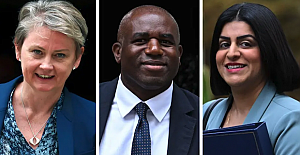 David Lammy arrives in Downing Street after becoming deputy prime minister
David Lammy arrives in Downing Street after becoming deputy prime minister CTCA UK Condemns the Political Forcing Out of Afzal Khan MP for Engaging with Turkish Cypriots
CTCA UK Condemns the Political Forcing Out of Afzal Khan MP for Engaging with Turkish Cypriots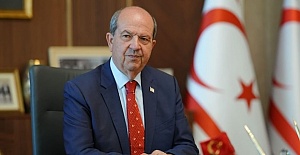 Tatar: “Reaction to MP’s TRNC visit is yet another stark example of the Greek Cypriot leadership’s primitive and domineering mentality”
Tatar: “Reaction to MP’s TRNC visit is yet another stark example of the Greek Cypriot leadership’s primitive and domineering mentality”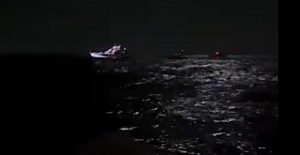 Latest! Israeli navy intercepts Global Sumud Flotilla as it approaches Gaza to break siege
Latest! Israeli navy intercepts Global Sumud Flotilla as it approaches Gaza to break siege Enfield Labour Calls for Public Feedback on Crime and Safety Concerns
Enfield Labour Calls for Public Feedback on Crime and Safety Concerns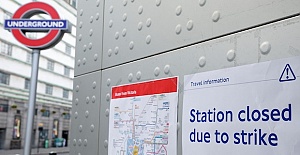 Important Travel Updates: London Underground and DLR Strike Action
Important Travel Updates: London Underground and DLR Strike Action Team Enfield ranks fifteenth the in London Youth Games
Team Enfield ranks fifteenth the in London Youth Games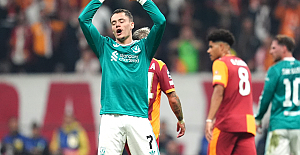 Champions League, Liverpool lose at Galatasaray
Champions League, Liverpool lose at Galatasaray Liverpool flew out for their Champions League match against Galatasaray
Liverpool flew out for their Champions League match against Galatasaray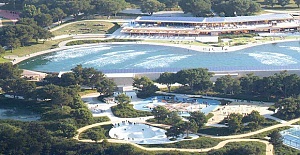 Enfield Council has approved plans for Surf London
Enfield Council has approved plans for Surf London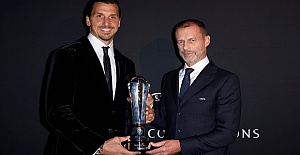 Zlatan Ibrahimović receives UEFA President’s Award
Zlatan Ibrahimović receives UEFA President’s Award Maritime Finance and Sustainability Take Centre Stage at LISW25 Gala Dinner
Maritime Finance and Sustainability Take Centre Stage at LISW25 Gala Dinner London welcomes traders back to the reopened Seven Sisters Market
London welcomes traders back to the reopened Seven Sisters Market Enfield’s Crews Hill and Chase Park shortlisted for potential New Town
Enfield’s Crews Hill and Chase Park shortlisted for potential New Town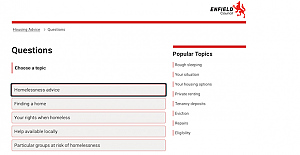 Important milestone achieved with no hotel placements for temporary accommodation
Important milestone achieved with no hotel placements for temporary accommodation







